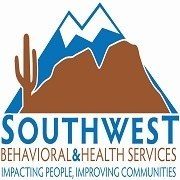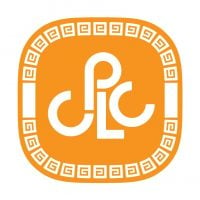
Arizona Mentor - Cambridge
Drug Rehab Center in Phoenix, Arizona
- Mental Health
Arizona Mentor - Cambridge is a mental health treatment center in Phoenix that offers inpatient treatment for up to 30 days with a focus on Cognitive Behavioral Therapy (CBT) and various other therapies to provide high-quality care for individuals struggling with mental health issues.
About
Arizona Mentor - Cambridge is an established addiction treatment facility located in Phoenix, Arizona. It is dedicated to helping individuals manage and overcome their struggles with mental health, substance abuse, drug addiction, and alcoholism. Their goal is to provide comprehensive and compassionate treatment plans, tailor-made for each individual’s specific needs. They provide inpatient and outpatient levels of care, and accept private health insurance to help cover treatment expenses. Arizona Mentor - Cambridge collaborates with Arizona Mentor to ensure all clients receive the highest quality of care.
At Arizona Mentor - Cambridge, they offer a variety of services to meet the needs of those struggling with addiction. They are committed to helping individuals overcome their addiction with evidence-based, therapeutic approaches, such as Cognitive Behavioral Therapy (CBT). Their certified professionals work with clients to develop effective treatment plans, while also providing support and guidance. They have also been fully accredited by the Joint Commission on Accreditation of Healthcare Organizations (JCAHO), ensuring that they adhere to all standards of care. In addition, all of their staff members are licensed through the Arizona Board of Behavioral Health Examiners.
Genders
Ages
Modality
Additional
Conditions and Issues Treated
Levels of Care Offered
This center offers a variety of custom treatment tailored to individual recovery. Currently available are Inpatient, with additional therapies available as listed below.
Inpatient treatment centers offer a safe, secure, and often medically supervised environment for drug or alcohol-addicted individuals. Many of these facilities are equipped to provide detoxification, treatment for co-occurring mental health disorders, and aftercare programs.
The patient typically spends 28 to 30 days at the facility and will receive extensive drug counseling. They will also learn how to live without drugs and how to make the right decisions in life.
Therapies & Programs
Individualized Treatment is essential because it gives addicts the ability to participate in a program that meets their unique needs. An addict should work with professionals who understand what they’re going through, especially if the addict is actively using. Finding the right treatment program for an addict is difficult, but it’s even harder without communicating with those who have experience treating your specific situation.
Group therapy sessions provide recovering addicts with a chance to cope with everyday situations that many face. Group therapy sessions are held in rehab facilities, clinics, churches or community centers that offer drug addiction treatment.
People who attend these groups are encouraged to voice their feelings and support other addicts in recovery. This helps group members strengthen their own recovery program while cheering on others who are struggling with sobriety.
Cognitive Behavioral Therapy (CBT) is a highly effective treatment option based on the idea that how we feel, think and act all interact together. Our thoughts determine our feelings and behaviors; our feelings affect our thoughts, and our behaviors change our thoughts and feelings. CBT helps people explore their thoughts for problems (or false beliefs) that influence their mood and actions. By examining their thoughts and beliefs, people can recognize distorted or irrational and modify them to more realistic, positive ones. CBT is very goal-oriented, which means that the therapist and patient work together on a specific problem while learning to become more adept at solving future problems.
CBT works well with a broad range of people, including those with depression, anxiety disorders, eating disorders, and problems with anger. In addition to helping a client focus on thoughts that can be changed, CBT also allows them to take an active role in their treatment. This is called a collaborative approach because both patient and therapist work together to produce the best possible results.
CBT is based on cognitive learning theory, which says that our behavior is a learned response to our environment. Cognitive refers to thoughts and beliefs, while behavioral relates to actions or deeds. CBT helps people learn ways of behaving to improve their quality of life by focusing on specific problems or goals they want to achieve. Sometimes, CBT is used alone; other times, it is combined with medications or brief counseling techniques such as solution-focused and motivational interviewing to achieve optimal results for the patient.
For people trying to kick their drug addiction, nutrition therapy at Arizona Mentor - Cambridge is a great tool. Nutritional deficiencies gradually creep in, and before you know it, you’re facing health problems. It helps restore balance to the body, and for many addicts, it represents the first step on the road to recovery.
Nicotine replacement therapy was developed to help people quit smoking. It does so by providing small doses of nicotine that control cravings and break smoking habits.
NRTC products like skin patches and gum deliver low-dose nicotine that prevents cravings, making the transition from smoker to non-smoker easier.
Patient Experience
Experiential Therapy at Arizona Mentor - Cambridge
Drug addicts can benefit from experiential therapy, which involves real-time activities to process trauma and emotions. This type of therapy is available at Arizona Mentor - Cambridge and can help reduce the need to resort to drugs and alcohol. Activities may include role-playing, use of props, and others. The individual learns to release suppressed thoughts that lead to negative feelings and embrace the present moment. Experiential therapy is beneficial in treating various disorders, including drug addiction, eating, and behavioral disorders.
Payment Options Accepted
For specific insurance or payment methods please contact us.
Is your insurance accepted?
Ask an expert, call (888) 674-0062
Arizona Mentor Associated Centers
Discover treatment facilities under the same provider.
- Arizona Mentor - Cactus in Phoenix, AZ
- Arizona Mentor - Echo in Glendale, AZ
- Arizona Mentor - Curry in Chandler, AZ
- Arizona Mentor - Jasmine in Peoria, AZ
- Arizona Mentor - Union Hills in Glendale, AZ
Learn More About Arizona Mentor Centers
Additional Details
Specifics, location, and helpful extra information.
Phoenix, Arizona 85037 Phone Number(602) 200-9494 Meta DetailsUpdated November 25, 2023
Staff Verified
Patient Reviews
There are no reviews yet. Be the first one to write one.
Phoenix, Arizona Addiction Information
Arizona has some of the highest rates of prescription drug abuse in the United States. Methamphetamines, heroin and morphine are among the most commonly abused substances. Prescription pain relievers were prescribed to 348 million people in 2012, enough to medicate every adult in Arizona for 2 full weeks. The number of people with substance use disorders in Arizona has remained relatively constant over the past few years.
In 2012, over 246,000 people were living in Phoenix dependent on or abusing drugs. This amounted to 10.8% of the city's population. In 2016, over 1,000 emergency room visits related to heroin and over 2,500 for cocaine. These numbers are only going up. There are many different rehabilitation facilities in the city and some 12-step meetings and support groups available for help.
Treatment in Nearby Cities
- Benson, AZ (154.7 mi.)
- Prescott, AZ (74.6 mi.)
- Queen Creek, AZ (38.8 mi.)
- Ajo, AZ (84.1 mi.)
- Prescott Valley, AZ (78.5 mi.)
Centers near Arizona Mentor - Cambridge



The facility name, logo and brand are the property and registered trademarks of Arizona Mentor - Cambridge, and are being used for identification and informational purposes only. Use of these names, logos and brands shall not imply endorsement. RehabNow.org is not affiliated with or sponsored by Arizona Mentor - Cambridge.




